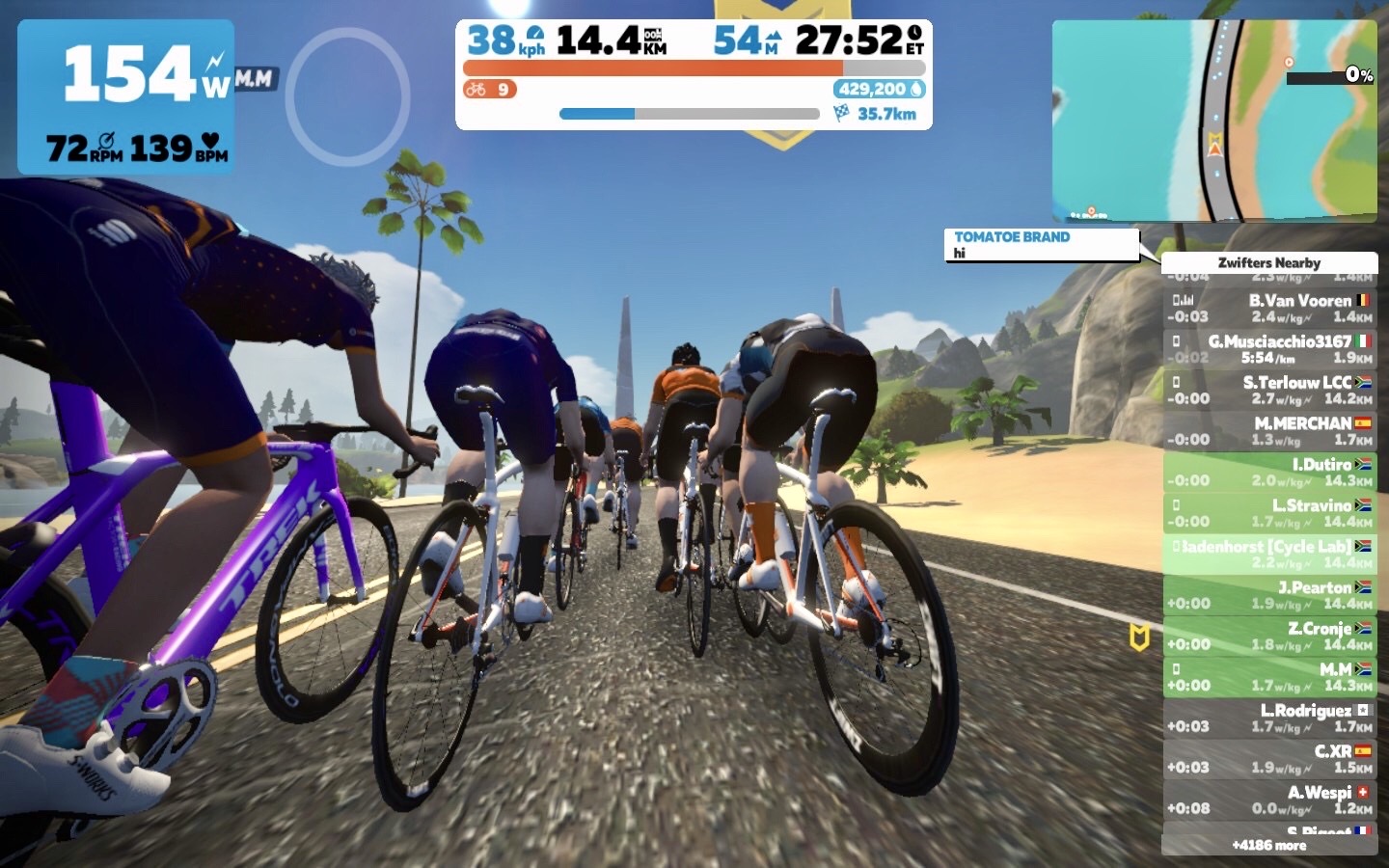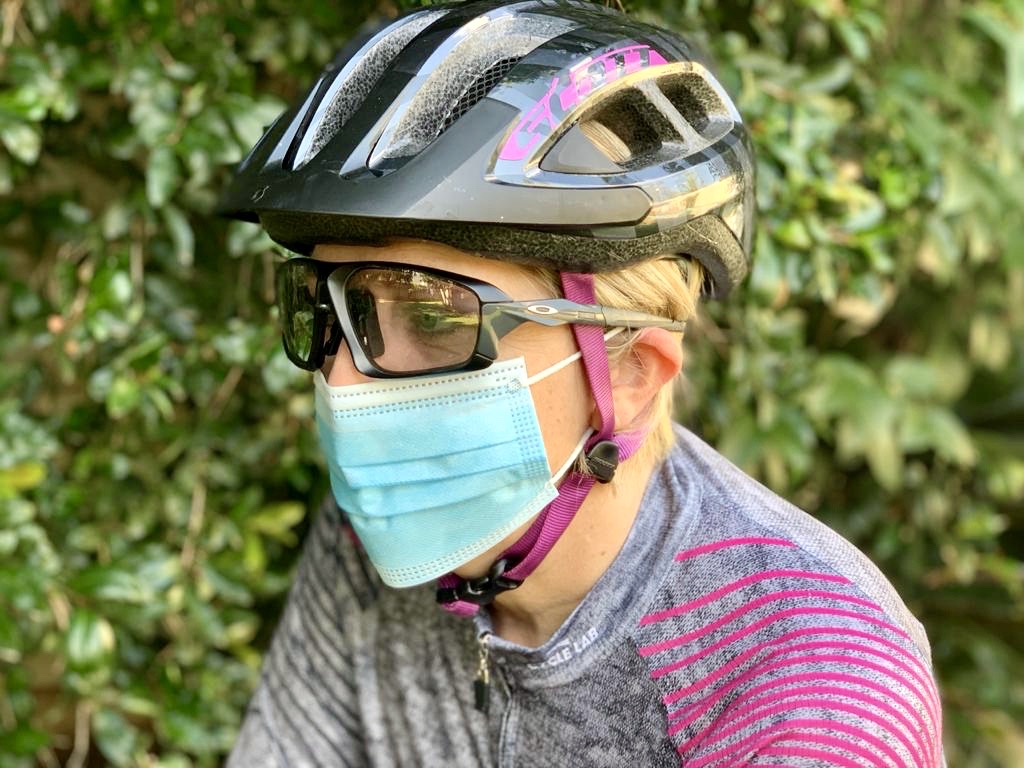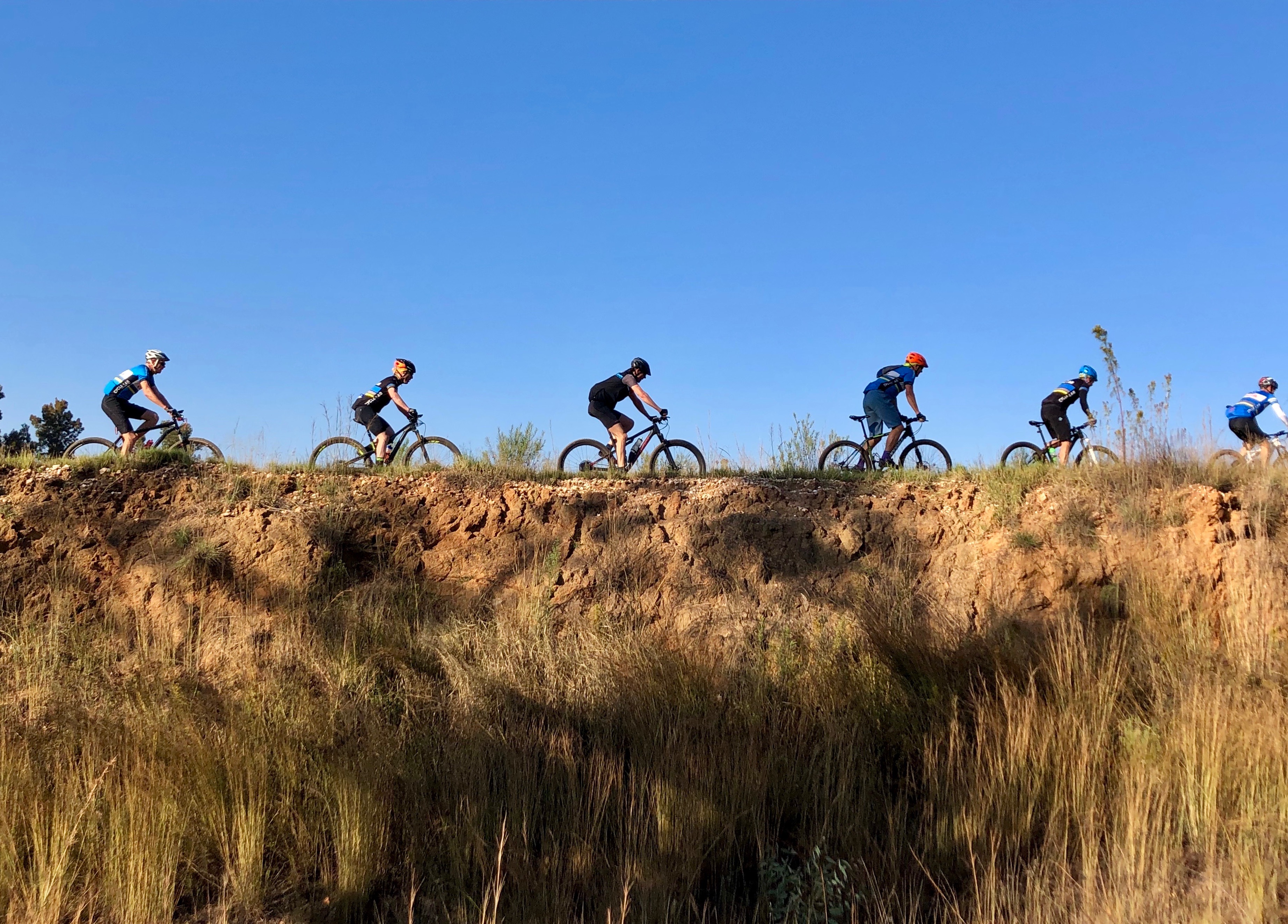Well that came out of nowhere! A national lockdown to manage the spread of the Covid-19 virus that’s changed the world and our world. Our world being the South African bicycle market. Has it been bad for us? Or has it, in a roundabout way, been good? Here’s a look at the bad and the good and how we can expect to move forward.
By Sean Badenhorst

But first, a Covid-19 timeline:
15 March – State of Disaster declared and Social Distancing regulations implemented
Bicycle retailers: hurriedly invest in sanitising products, face masks and make relevant in-store signage and social media posts to show they’re aware of – and adhering to – the new regulations to curb the spread of a new, potentially very deadly, highly contagious virus.
Bicycle riders: start working out how to continue riding safely alone or in smaller groups, eagerly sharing links to articles that try to explain how viruses are – and aren’t – transferrable when riding.
23 March – President Ramaphosa announces a 21-day lockdown will begin on 27 March
Bicycle retailers: are overwhelmed with unprecedent demand for home trainers and quickly deplete the stocks of wholesalers that import home-trainer brands.
Bicycle riders: squeeze in a last few outdoor rides with a growing trepidation over what the future may hold. Mainstream media says that the global stats are frightening and those who are prone to panic, do. Those that can, buy a home trainer. Those that can’t, convince themselves that it’s only three weeks, not too long in the big picture.
27 March – Lockdown Level 5 begins
Bicycle retailers: close all brick and mortar stores with a mindset that it’s going to be a very different 21 days. Those with websites start focussing on selling online to keep cash flowing. Those without an e-commerce facility are left helpless. Some find comfort in baking banana bread…
Bicycle riders: with home trainers begin to appreciate their investment. Some of those without home trainers experience FOMO. Lawn sacrifices are made as some ride their bikes around their gardens and a small percentage complete crazy confined-space endurance challenges. Covid-19 conspiracy theories offer a fascinating distraction. Government questioning begins.

9 April – The president announces a two-week Lockdown Level 5 extension
Bicycle retailers: with e-commerce options become more frustrated as purchases cannot be delivered. Some slash prices of existing stock further to minimal profit margins, just to keep cash flowing. Those without an e-commerce option have to begin cutting costs or face the reality that they may have to close shop for good. It’s a reality that can’t be escaped, no matter how many raw-egg downing challenges you accept. Government resentment grows…
Bicycle riders: with smart trainers gain serious fitness and strength and start becoming accustomed to apps like Zwift and Rouvy. Some start Zwift racing and others begin to show signs of utter obsession. Those without smart trainers accept their fate and take up a new hobby, or start desperately seeking some form of home trainer on which to pedal. Disappointment grows as more and more events announce postponement or cancellation.
1 May – Lockdown Level 4 is enabled
Bicycle retailers: are highly confused as to whether or not they can open brick and mortar stores to trade due to unclear government regulations. Some stores open but are promptly fined by over-eager members of the SAPS, making all retailers wary of opening. Confusion reigns. Legal advice sought by Rush Sports reveals that retailers may legally resume trade as the lockdown regulations don’t replace everyone’s constitutional right to earn a living or run a legitimate business. Some retailers open, while others remain closed until mid-May. Some keep their doors closed but trade covertly. Confusing government regulations turn honest people into rule-breakers because, well, despite nature’s break from human interference, money still doesn’t grow on trees. Under immense pressure from both a legal perspective and a common sense perspective, the government allows all e-commerce to resume, with deliveries of purchases reluctantly permitted.
Bicycle riders: realise that outside isn’t really free after all and appreciate the ability to exercise daily, but rightfully complain about the government’s unqualified reasons for the 5km radius distance limitation and 06h00-09h00 time restriction. Those with smart trainers mostly remain in smart-training mode, while those without, dress warmly, charge their lights and enjoy being able to ride their bicycles again, albeit it close to home. Karen from Facebook examines Strava activities and makes general – and specific – social media tattletale posts. Savvy riders set their Strava accounts to private…

1 June Lockdown Level 3 is enabled
Bicycle retailers: that have been trading in May are surprised but certainly not unhappy with a surge in business, albeit mostly through sale of existing stock, mostly marked down in price. It’s desperately needed to recover from the devastation of lockdown. New stock pricing is up more than 20% due to the severely weakened Rand and customer communication becomes vital in relaying this being the reason for the ‘crazy’ price hikes… Smaller stores that still can, open for trade, some with limited hours. Social media marketing becomes essential to ensure customers are aware exactly which stores are open. Social distancing and hygiene practices are refined and staffing, for those that are lucky enough to still be employed, is restricted, in order to comply with further government rules.
Bicycle riders: embrace Level 3 regulations which offer no distance limitations (we assume) and permission to ride between 06h00-18h00. Riders take to social media to find out where they can ride and TREAD delivers a well-timed, informative article to answer those questions. Riders queue obediently at 1.5 metre intervals outside their local bike shops just to buy some lube, or a tube, are advised that understaffed workshops have waiting lists and are reminded that even in a pandemic, or rather, especially in a pandemic, patience is still a virtue…

What does the future look like for the South African bicycle market?
The lockdown has led to a mini bicycle boom in the UK, Australia, New Zealand, many European countries and parts of the USA. It’s partly because people are looking for a cost-effective alternative to public transport (which sucks when it comes to trying to adhere to social distancing) and a desire to become healthier. It’s wonderful.
There are signs that this may be happening in South Africa too. Not for the public-transport avoidance reason, obviously. Retailers are reporting that people that used to be bicycle riders are taking their old bikes from store rooms into bike stores to get them going again. We’ve noticed this too. Many suburban road or greenbelt trail riders on old 26-inch mountain bikes, rediscovering wind-in-your face freedom. It’s wonderful.
Riding bicycles, particularly mountain bikes in the bush, is one of the best ways to get fit, stay sane, enjoy the outdoors and find your thrill, all comfortably satisfying the now familiar social distancing ‘rules’. Retailers are also reporting that there’s a distinct trend in people that weren’t previously bicycle riders buying entry level bikes or eBikes to embrace the numerous physical and mental health benefits of riding bicycles. It’s wonderful.
Sadly, some bicycle retailers have been unable to continue, succumbing to the economic crush created by the lockdown. Most of those retailers that survived have an e-commerce enabled online store, which helped them continue trading, albeit unable to do deliveries until Level 4. It’s likely that all retailers will now ensure they’re e-commerce enabled, partly because lockdowns may be part of our lives for some time and partly because online shopping is more accepted by South Africans now. It took a global pandemic to bring us in line with the rest of the developed world to confirm that you can buy plenty online, which translates to having more time to ride. It’s wonderful.

But what really determines the future of the South African bicycle market is demand. Demand for bicycles and related accessories and services. And this depends on a few factors, the two standouts being rider safety and rider motivation. If you feel unsafe riding a bicycle, you’re unlikely to want to ride more. Unfortunately, South Africa’s safety record is poor, both for road cyclists, who have to be wary of selfish/drunk/unlicensed motorists and criminals; and mountain bikers, who need to be aware of criminals. Mountain bike trails parks offer high levels of safety for mountain bikers and those that cater for beginners are to be appreciated and supported by the industry because that’s where cycling sparks of interest become flames of passion. It’s wonderful.
The best motivator for South African mountain bikers is a race. Not just for the competitive, but also the ambitious looking for an official, well-organised, medically supported challenge. By their nature, races create large groups of people in close proximity to each other, a big no-no by Covid-19 restrictions. So, we’re likely to only be able to see events return in Lockdown Level 1, and even then, probably under new safety regulations. What’s the best way to make South African cyclists really appreciate the incredible range of high quality events they have access to? Remove them for a few months. But when they return, boy are they going to be in demand! It’s wonderful.
Although Covid-19 came out of nowhere and changed our world, we should be aware that the ‘new normal’ may just be the unifying boost the fragmented South African bicycle market needed. The long lockdown has devastated our economy but it’s also created a stronger interest in exercise and a renewed appreciation for the outdoors, which means more people riding bicycles. It’s wonderful.


